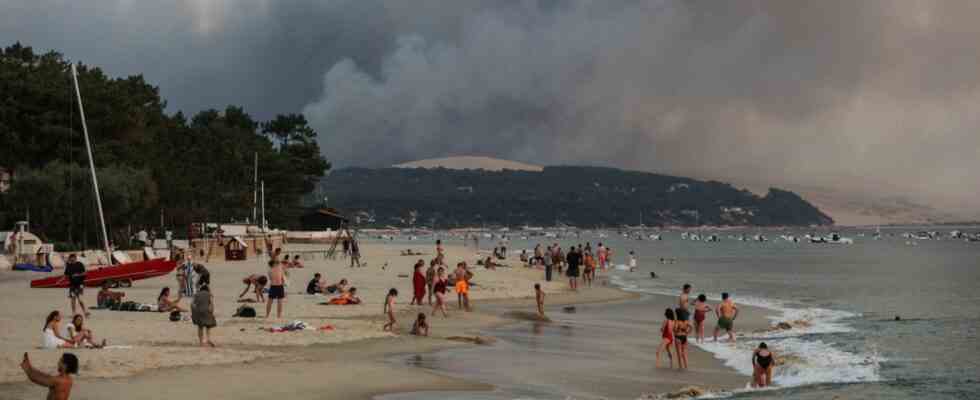The current heat wave has triggered extensive forest fires in France, Spain and Portugal in particular, and there are also fires in Greece and Italy. What are the rights of vacationers who want to fly to one of the affected regions in the near future? And what about bookings in the coming months? What travelers should know now.
Can the holiday be canceled free of charge?
Package travelers are best protected under travel law. Smoke and ash in the air, sources of fire very close by – these are in the language of the German Civil Code (BGB) “Unavoidable and extraordinary circumstances” which “significantly affect” the execution of a package tour and therefore give the traveler the right to cancel the booking free of charge. “Circumstances are unavoidable and extraordinary when travelers and tour operators cannot control them. This is the case with natural disasters such as volcanic eruptions, forest fires, earthquakes or seaquakes in or in the immediate vicinity of the travel area,” explains Jennifer Kaiser, specialist advisor for digital and consumer law at the consumer advice center Rhineland-Palatinate.
Important: Not every holiday to France, Portugal or Greece can now be canceled free of charge. The trip must actually be specifically affected. The decisive factor is the location on site – and not the personal sense of security.
The tour operator can also cancel the trip if it cannot go ahead as planned. The travel price must then be reimbursed within 14 days.
What applies to holidaymakers who are already on the move?
Vacationers who have already started their trip can also invoke the package travel law: they can terminate the contract and demand reimbursement for the unused services. If arrival and departure were part of the trip, as is the case with most package holidays, the organizer must also organize and pay for return transport. If the journey home is delayed due to the fire, he is responsible for a maximum of three additional overnight stays.
If you stay despite the impairments, but have to do without excursions that have already been booked or accept a changed round trip route, you can try to have part of the travel price reimbursed after the holiday. Finally, the stay did not go as agreed. However, you should be prepared to have to fight it in court.
Is it also possible to cancel free of charge if the trip does not start for a few weeks?
Nobody knows how the situation will develop in the coming weeks, when the fires will be extinguished and which regions may still be affected – whether there will still be a “significant impairment”. Therefore, the right to free travel cancellation does not apply here. Vacationers can of course cancel, but then have to expect fees. However, due to the corona pandemic, the tour operators are currently more accommodating than ever before and often allow short-term rebookings.
What rights do individual travelers have?
Individual travelers who have booked flights and accommodation separately will also get their money back if the service cannot be provided. If the flight is canceled because of the fires, either a replacement must be offered or the money refunded. However, there is no compensation, not even in the case of delays caused by ash and smoke: Here the airline can refer to extraordinary circumstances that it cannot influence.
In the case of accommodation, the decisive factor is whether the booking was made on the basis of German law. Then the holiday apartment does not have to be paid for if it cannot be occupied, for example because it is in a restricted area. Conversely, if the accommodation is habitable and accessible, the landlord has done his duty. He cannot be held responsible if the sky on the beach is not blue but ash gray or places of interest are inaccessible due to the fires. If the contract is concluded directly with a foreign landlord, the law of the respective country applies.
Does travel cancellation insurance help?
No, the travel cancellation insurance usually does not step in in the event of unavoidable, extraordinary circumstances. It is intended to protect against individual risks, such as falling ill shortly before departure, losing your job or the death of a close relative.

